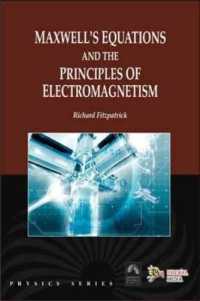- ホーム
- > 洋書
- > 英文書
- > Science / Mathematics
Full Description
This book collects papers from four workshops organized by the ESF Research Networking Programme "The Philosophy of Science in a European Perspective". A major theme of the volume is analysis of the concept of probability for various philosophical purposes.








